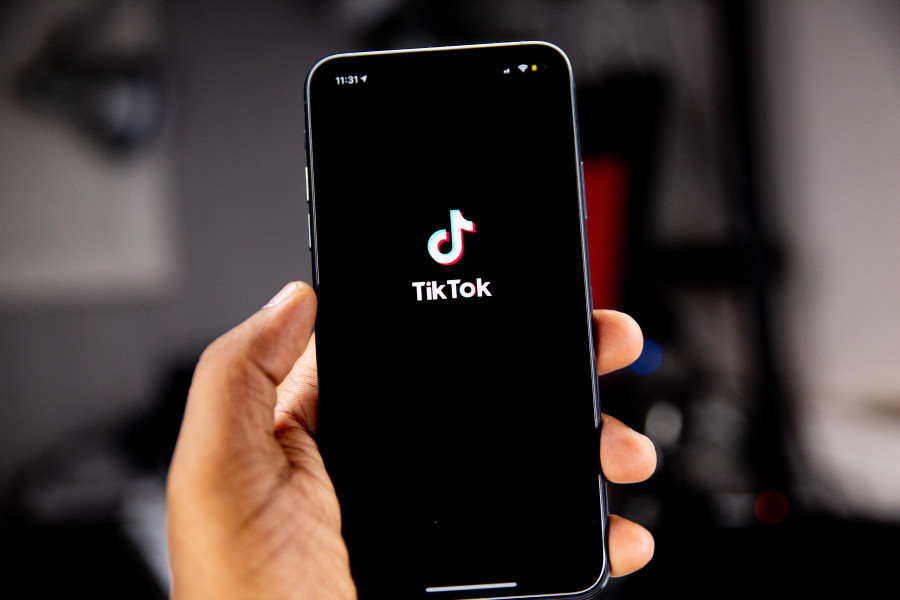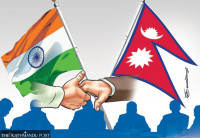National
TikTok becoming a new platform for online gambling in Nepal
Police say they find it hard to arrest gamblers, who use fake identities.
Anup Ojha
At a time of fast-changing nature of crimes with the advent of new technologies, some unscrupulous elements have found yet another modus operandi for gambling.
According to police, a group of people is involved in gambling with the help of Chinese app TikTok (owned by tech giant ByteDance) and they run gambling dens live on the app.
Police officials say although they have arrested some people involved in such illegal activities, they are finding it difficult to trace the gamblers as most of them use fake IDs and phone numbers. As access to new phone numbers has become easier, such users keep changing their numbers or dump certain numbers after using them for illegal activities, police said. Lack of clear laws to tackle cyber crimes is yet another challenge.
Between January 10 and January 17, the Kathmandu Valley Crime Investigation Office, Minbhawan nabbed four people from different places who were involved in organising gambling via TikTok live. Police said they were doing transactions of over Rs5 million using digital wallets.
Three of the gamblers were arrested on January 10 and one more on January 17.
Rishi Prakash Yogi, 21, who ran playing cards games on TikTok with the nickname Pugg and Pubg2, was arrested from Gwarko in Lalitpur. Police records show that Yogi made transactions of Rs2.8 million through e-Sewa mobile wallet over the past 10 days, playing the game live with different people.
Another gambler, Kapil Giri, 27, was nabbed from Suryabinayak Municipality-10 in Bhaktapur. He organised online gambling on TikTok under the alias Pler King. Police records show that Giri collected Rs1 million from three different e-Sewa accounts within 10 days.
That same day, police apprehended Prem Kathyat, 21, another online gambling organiser on TikTok, from Madhyapur Thimi-1 in Bhaktapur. He conducted transactions worth Rs93,214 through e-Sewa within six days.
Meanwhile, on Tuesday, police apprehended Harischandra Malla, 35, from Harisiddhi, Lalitpur. Malla, who operated under the alias Kick Cash, had transactions worth Rs853,331 over the past 15 days via two different e-Sewa accounts.
The gamblers were arrested with cell phones, a diary used to keep record of players and transactions, and books of cards.
According to the Valley Police Investigation Office, the gamblers have been sent for further investigation under Section 125 of the National Penal (Code) Act, 2017, which prohibits gambling and betting in Nepal.
“These are among the first cases of police nabbing gamblers on TikTok, but there is no proper cyber law to punish them,” said Superintendent of Police Krishna Prasad Koirala, who is also the spokesperson for Kathmandu Valley Crime Investigation Office.
According to police, after it released the names of the gamblers, they have received a flood of phone calls on their emergency toll free number (100), complaining about more such incidents of gamblers going live.
“It seems that the gamblers have found TikTok live the best option, as many people use the app in Nepal,” said Koirala. Earlier, police would catch gamblers from their apartments and taverns. According to Koirala, those organising gambling at first invite people as guests on the app, collect money through the mobile wallet apps, and then run the game live online. Mainly they play three-card Faras, also known as open Faras.
To go live on TikTok, the user must have 1,000 followers.
Koirala said that police used its own surveillance techniques to nab those gamblers. “But there are many people operating gambling networks with fake identities and numbers and without proper identity,” he said. “We can’t close the concerned TikTok accounts as we do not have direct access to TikTok administrators.”
TikTok is a video-sharing social media platform where one can create, edit, share, discover and watch short videos. After finding it challenging to monitor activities on TikTok, some countries have even banned the app, for instance India in 2020. Even the United States last month banned the app on government-issued cell phones.
Experts say that the number of TikTok users has soared in Nepal since the Covid pandemic hit the country in March 2020.
Though many find it a useful distraction, a few are misusing it.
“I started using TikTok after the Covid-19 pandemic. I pass time on the platform after I do my studies. These days, I have also noticed that some people go live and gamble there,” said Sailesh Bastola, 21, a student at Thapathali Engineering Campus who is a regular Tik-Tok user. “If police do not control it, this may have serious consequences. The regular gamblers who would run the racket from their apartments now got a digital platform to do so.”
In Nepal, a few people have also made TikTok a source of their income by going live for hours, while some others have become viral with their dance moves, singing or mimicry. But the police are increasingly concerned about criminal activities being undertaken via social media.
According to a story published in the media platform Rest of World, a 2022 nationwide survey showed a dramatic rise in the number of TikTok users in Nepal. The number of respondents with internet access who reported using TikTok jumped from 3 percent to 55 percent in the past two years.
According to Start.io, a mobile data platform, there are 2.2 million active TikTok users in Nepal, although activists and digital rights groups estimate a much higher number.
“With access to the internet, people can participate in illegal activities, including gambling,” said Santosh Sigdel, an internet freedom advocate and president of Digital Rights Nepal.
He said the law regulating the offence of gambling has not covered ‘online gambling’ in the penal code.
“Just like the so-called online gambling, many cyber offences are not explicitly regulated in Nepal. This is a serious issue,” said Sigdel. “It’s high time that we expedite the legislative process to enact information technology and cyber offence laws in line with international cyber laws, as well as human rights and criminal justice principles.”




 13.12°C Kathmandu
13.12°C Kathmandu.jpg)















